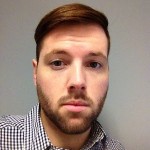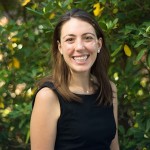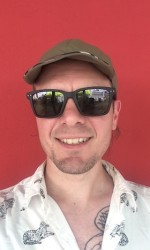The Boren Fellowship is a unique opportunity for U.S. graduate students to study less commonly taught languages in world regions including Africa, Asia, Central and Eastern Europe, Eurasia, Latin America and the Middle East. Learn more about this fantastic international opportunity, and the application process necessary to get you there, from two successful UW applicants: Benjamin Ditter and Margaret Walrod.
Why the Boren Fellowship? What drew you to the program and to your country of choice?

Benjamin Ditter: My master’s program is International Studies—China Studies. I have minimal in-country experience and wanted to enhance my linguistic and cultural skills. Beijing is the cultural and political capital of China, so that is where I decided to go. I also hope to obtain a relevant internship there.

Margaret Walrod: My initial interest in the Boren Fellowship was twofold: 1. As someone who is passionate about pursuing a career in public service, the competitive hiring privileges that come with being a fellow are quite enticing. 2. Although my academic focus in undergrad was South Asia, I do not speak any related languages nor have I spent a significant amount of time in the region. Boren will afford me an opportunity to do both.
The Boren Fellowship requires one year of federal service. How do you plan to approach this requirement?
BD: Through the State Department, but I’m open to other options in the Department of Defense, CIA, Department of Homeland Security, and/or IEE. This will be very challenging though, due to the Boren requirement that you cannot be affiliated with nor be in contact with any government agency while participating in Boren. So, I may need to look to the private sector first, so I have a job upon returning to the U.S., then apply for and move to a federal job many months or a year after.
MW: I am currently working for the U.S. Department of State and hope to return to the Department after my fellowship to fulfill the service requirement. Boren Fellows are also eligible for the Diplomacy Fellows Program — an opportunity I am eager to take advantage of to pursue a career as a Public Diplomacy Officer in the U.S. Foreign Service.
How did you identify a language study program in your destination country?
BD: I knew of Tsinghua University as one of the top two universities in China and also know that most universities have Mandarin programs for non-native speakers, so I just went to their website and looked at the requirements, then applied.
MW: I chose to apply to the American Institute of Indian Studies (AIIS), as it is the same institution the State Department’s uses for its Hindi and Urdu Critical Language Scholarships. AIIS is also one of only a handful of Urdu schools which caters to English speakers — many Urdu programs are designed for students’ whose mother tongues are Arabic or Farsi.
What language preparation did you have before applying for the Boren?
BD: I completed third-year Mandarin at UW, Critical Language Scholarship in China during the summer of 2016, and one quarter of Classical Chinese.
MW: I never formally studied Urdu before enrolling in the University of Washington, however, I do have a background in Mandarin Chinese. In my application I discussed what techniques I used to learn Mandarin and how I would modify them to help me master Urdu. Part of learning a language is learning how to study it.
What is one piece of advice you would offer to future applicants?
BD: Don’t doubt yourself if you don’t already have a research contact or internship lined up when you apply. I am proof that you can articulate your intent to find one, but it is not a guarantee, and they may still accept you. Also, stay strong during the application process. It’s long and grueling, and you may not get support from faculty, but as cheesy as it sounds, you need to keep believing in yourself when it seems that no one else does.
MW: Start early! I began brainstorming my application essays — particularly the one regarding national security — almost a year before the deadline. If you want to submit a compelling case it’s important that you take time and effort to organize your application. You should also take advantage of all the campus resources available, such as writing centers, professors, and of course the Graduate School Office of Fellowships and Awards.
